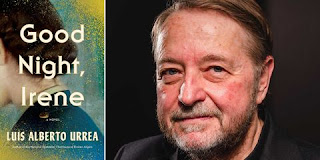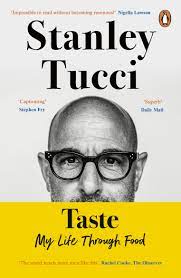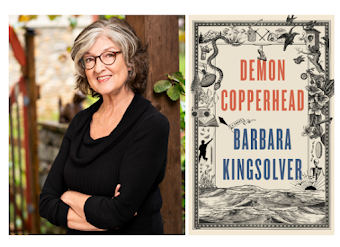Now that New Year's Eve has arrived, with only a couple of hours before the ball drops, it's safe for me to post my list of books I read this year. I don't think I'll have time to read one more. I fell a few short of my last year's total (86), but I also completed (and published) my dissertation this month, so I think I'll give myself a pass.
Compiling the list I am reminded pleasantly of books I loved, and occasionally I have trouble remembering the plots of one or two. Some of the books on the list (especially the poetry) are written by friends. I suspect I may have failed to add a few poetry collections or chapbooks that I read.
Over the next day or so, I will give some brief reviews of my favorites. I look forward to comparing my lists to those of other readers whose taste I trust. (You know who you are.)
2023 Book List
1. Barbara Kingsolver, Demon Copperhead
2. Louse Penny, World of Curiosities
3. Rick Bragg, The Best Cook in the World
4. Kimberly Belle, The Marriage Lie
5. Dana Malone and Laura Suzanne, Mother, Grave, Ghost (poetry)
6. Fredrick Backman, Us Against You
7. Shelby Van Pelt, Remarkably Bright Creatures
8. Annie Lyons, the Brilliant Life of Eudora Honeysett
9. Fredrik Backman, The Winners
10. Patti Callahan, Once upon a Wardrobe
11. Stanley Tucci, Taste: My Life through Food
12. Matt Haig, How to Stop Time
13. Aanchal Malhatra, The Book of Everlasting Things
14. Rachel Joyce, Maureen
15. Jane G. Garrett, My Fractured Life
16. Jennette McCurdy, I’m Glad My Mom Died
17. Andrew Sean Greer, Less Is Lost
18. Ana Reyes, The House in the Pines
19. William Kent Kruger, The Levee
20. Ann Napolitano, Hello Beautiful
21. Kamila Shamsie, Home Fire
22. Jeanette Walls, Hang the Moon
23. Donna Tartt, The Secret History
24. Kevin Wilson, Now Is Not the Time to Panic
25. Wayne Flynt, Afternoons with Harper Lee
26. Gin Phillips, Family Law
27. K.B. Ballentine, Spirit of Wild (poetry)
28. Charles Frazier, The Tracker
29. Clyde Edgerton, Walking across Egypt
30. Tom Hanks, The Making of Another Major Motion Picture
31. Luis Alberto Urrea, Goodnight Irene
32. Ada Limon, Carrying (poetry)
33. Elizabeth Letts, Finding Dorothy
34. C.S. Lewis, Mere Christianity
35. Ian McEwan, Nutshell
36. Lynda Rutledge, West with Giraffes
37. Elizabeth Berg, Earth’s the Right Place for Love
38. Hendrik Gruen, Two Old Men and a Baby
39. David Brooks, The Road to Character
40. N.T. Wright, After You Believe
41. William Martin, The Lincoln Letter
42. John McPhee, Tabula Rasa, vol. 1
43. Raymond Carver, What We Talk about When We Talk about Love
44. Ann Patchett, Tom Lake
45. Wiley Cash, When Ghosts Come Home
46. Christine Galib, Etched in Stone
47. Brendan Slocumb, The Violin Conspiracy
48. J. Ryan Stradel, Kitchens of the Great Midwest
49. Jessica George, Ma’ame
50. Matthew Mumber, Attending (poetry)
51. Kevin Wilson, Perfect Little World
52. Hadley Vlahos, The In-Between
53. Harrison Scott Key, How to Stay Married
54. Lisa See, Lady Tan’s Circle of Women
55. Kevin LeMaster, Mercy (poetry)
56. Dolly Parton & James Patterson, Run Rose Run
57. Lindsay Lynch, Do Tell
58. Geraldine Brooks, Horse
59. Annabel Smith, Whiskey and Charlie
60. Melody Wilson, Spineless: Memoir in Invertebrates (poetry)
61. Ron Rash, The Caretaker
62. Thrity Umrigar, Honor
63. Richard Osman, The Last Devil to Die
64. Linda Parsons, Valediction (poetry)
65. J. Ryan Stradel, Saturday Night at the Lakeside Supper Club
66. Sheila Johnson, Walk through Fire
67. Dolly Parton, Songteller
68. Lydia R. Hamessley, Unlikely Angel: The Songs of Dolly Parton
69. R.F. Kuang, Yellowface
70. Scott Owens, Prepositional (poetry)
71. Allison Pataki, The Magnificent Lives of Marjorie Post
72. Ammon Shea, Reading the OED
73. Ken Follett, The Armor of Light
74. Margaret Renkl, The Comfort of Crows
75. Sigrid Nunez, The Vulnerables
76. Charlie Lovett, The Further Adventures of Ebenezer Scrooge
77. F. Lagard Smith, ed. The Chronological Daily Bible



















